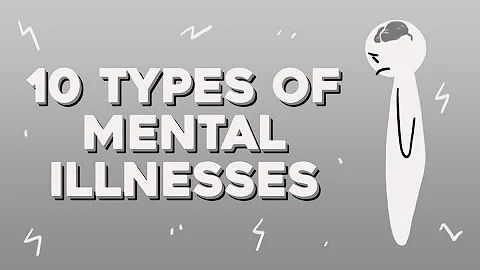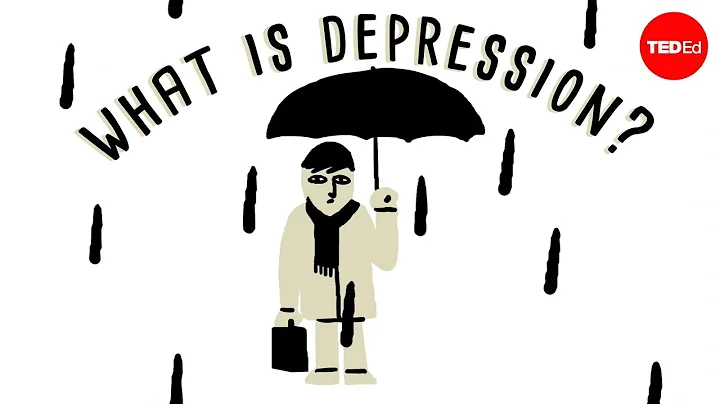Psychological counselor's daily life documentary
"After my wife proposed to wash the pot, I was reluctant" Analysis of the reasons behind this
After asking Teacher Ma Chengning, some guidance given by Teacher Ma and my thoughts were shared with everyone
Yesterday After I got home from get off work in the evening, I made a stir-fried potato powder with celery. After eating, I was going to take a break to wash the pot. At this time, my husband came over and said: "You can rest for a while, I'll wash it." I was actually very happy when I heard this sentence: "Husband is so considerate", and then my subconscious reaction was: "It's okay, you can do it" I'll wash yours." I said "I'll wash it" with concern behind it, just to let him rest for a while so that I can wash it myself. But I found that behind it is actually more of a kind of worry. What worry is it? ——If you can’t wash it clean, I’ll feel uncomfortable and I’ll have to do it all over again. Why don’t I do it from the beginning? First, I feel comfortable when I wash it. Second, if you can’t wash it clean, I might get emotional.
After he finished washing, I saw that it was very neat and clean.

What problems are reflected here? I want to record and analyze it.
First of all, it can be seen from my reaction "I don't trust his washing skills, and I am unwilling to give him a chance to a certain extent. As long as it is washing the dishes, I have to do it myself. , what are the consequences of this? I may have to wash and clean the pots in the future. "
This kind of thinking is not good. If it is between objects, it is fine. If it is educating children, this mentality is fatal. Yes, it can be said that if a mother has such a mentality, the child will definitely have mental illness. Why? Let me talk to you in detail.

The first situation is: you have never seen your husband or your partner wash dishes at all.
You don’t know if he washes the dishes cleanly, but you have certain requirements for the cleanliness of the dishes. If you have never seen his ability to wash the dishes, you will not trust his skills after washing the dishes. You will remain skeptical. What this reflects is "uniqueness of standards" , that is, when you wash dishes, you have a standard, and you also hope that others will do things according to your standards. If they don't do things according to your standards, or you don't know what they have done. Later, if it meets your standard, you will start to feel anxious, uncomfortable, and uncomfortable. In order to stifle this anxiety and possible anxiety, you eliminate the source of anxiety that causes your anxiety in advance - don't let your husband wash the dishes, wash them yourself. This way, it will always meet your own standards, and "he" will not appear. Wash away the anxiety of not meeting your own standards.” So if you have such thoughts, you will have to bear the possible consequences, that is, you may have to wash dishes for the rest of your life. Can you accept it?

Many people are actually contradictory. Just like some women complain that their husbands don't wash the pots and dishes, but when they wash the dishes and pots, the women complain that they can't wash them clean. It's inappropriate here, it's inappropriate there, and it doesn't fit anywhere. Eyes, and then this man is even more reluctant to wash the pot. The subtext in his heart is: "It's okay if you don't wash it, but if you wash it, it will be more nagging and complaining. Just don't wash it. You wash it, what you wash is the best." . See if the reality is like this? Some people even get divorced because of washing pots and dishes.
This is "not allowed". The only standard of is that the second standard is not allowed to exist. You can only do things according to my standards. Only in this way is it allowed and recognized and affirmed by me. Otherwise, you will be completely unqualified. It is as if you are an examiner who is always considering whether other people's abilities are up to standard, and you only have one chance. Once you fail to meet the standard, you will be vetoed by one vote, and you will not be given the opportunity to grow at all.

You do not allow things that do not meet your expectations and standards to happen. This is a requirement, this is control. not only destroys intimate relationships, but also causes great harm to children in educating them.
For example, a child has weak abilities. Some of the things he does are not up to the standards of adults. He just doesn't play well at the beginning. You can't say forget it, you can't do it, I'll do it for you, you If you can't tie your shoelaces well, I'll do it for you. If you can't put on your pants, I can help you every day. If you don't know how to hold a spoon, I'll feed you. If you can't do anything, I'll do it for you. - This is excessive substitution. , this is doting. The child is still young and his own abilities are weak. If you ask him to use the eyes and standards of an adult, he must meet the same standards as you immediately. If he cannot do the impossible, you must Give him a chance and give him time to grow step by step instead of replacing him. The consequence of replacing all the actions of the child is that your child will know nothing, be mentally retarded in life, and think that he is the boss in the world, and will eventually become trapped in a cocoon. This will harm the child for a lifetime, so such parents are not allowed, and such thoughts are not allowed.

Or it’s the other extreme. If you don’t do well, if you don’t do things up to my standards, I will belittle you as useless and nothing. I will scold you, reprimand you, punish you every day, and even tell you that you don’t even know what you are doing. They are worse than dogs. They prohibit you from doing anything, that is, they don’t teach you what to do properly. They only stand on the “god seat” of parents and look down on their children and oppress them. Such parents are unacceptable, and such thoughts are even more unacceptable. Children from such families are either cowardly, accomplish nothing, have extremely low self-esteem, or they have anti-social personality and hate the world.
So as a parent, you have to allow your children to do poorly. You have to allow your children to grow up little by little. You can help him and assist him, but do not replace or prohibit him. He doesn’t know how to eat, so you can let him grab his own food. It doesn’t matter if it’s a little dirty, as long as it doesn’t choke or burn him, and an adult is around, he can do whatever he wants and exercise his sense of autonomy. When he can hold chopsticks, Teach him little by little not to be in a hurry for success, and not to forget his childhood self when he becomes an adult.

When you allow others to do things according to their own standards and conditions without interfering, you are breaking the single standard.
For example, if your husband still has a lot of oil after washing the dishes and pots, or forgets to wash the pots after washing the dishes, or does not wipe the table after washing the pots, you can teach him one time at a time. You have to let him wash, and you have to give him a chance. Let him grow. If a person is not proficient in a certain skill, or does not want to learn it from scratch, then his ability in this skill is equivalent to a child learning a certain ability, and he must take his time.
First, give him a chance, secondly, help from the side, thirdly, patiently guide and encourage--in the end, his ability will improve, and you will not have to bear the result that all the pot and bowl will be yours in the future. Moreover, both of them were very happy when doing what they did. No one got angry when someone praised them for something they did. They were both very happy, so why not do it.
What should I do if some people say that they don’t want to do it at all? Then make the request step by step, for example, hand me a rag today, bring the rag to wipe the table tomorrow, wipe the table the day after tomorrow and throw the garbage into the garbage bag, wipe the table the day after tomorrow, put the garbage into the garbage bag, and then wipe it for you. Wipe the dishes. Step by step guide.

In short, you cannot ask others to meet the same standards as you all at once. It is inappropriate and unreasonable, and it is easy for others to rebel. It is just like when your mother asked you to work when you were a child, but you were extremely reluctant to do it, and she would criticize you. To put it bluntly, after you have finally finished your work, she still wants to comment on it and say, "Isn't that all you did/what did you do badly?" Do you suddenly feel that the fruits of your labor are the same? Others are sure that it is very uncomfortable, and they will never dare to do it again in the future, the same thing.
If you say you can't do these things, then there is no other way. Just accept the result of washing the pots and dishes by yourself. Just like some people say, "You don't want to wash it, but you want me to wash it, but you can't see it after I wash it." You are still talking about me, so if you don’t talk about me in case you get angry, you should clean it up.” So, why not try it another way?

The second situation: You have already seen your husband or your partner wash the dishes, and he has washed them very clean, but you still have the thought "Forget it, I'll do it. If it's not clean, I still have to do it." "If you have these thoughts, then you may have your own complex about washing dishes.
Teacher Ma said: "You can analyze it yourself and see if your complex is fear or a problem of the superego?"
I analyzed it myself. What will happen to a lot of oil if it cannot be washed clean? At this time, I don’t have any emotions or reactions; if it’s my husband, and he doesn’t wash it and washes it the next day, I don’t have any emotions or reactions; if it’s me who doesn’t wash it, but washes it the next day, I still have nothing to do Emotions and reactions; but once I start washing and it’s not clean, my subconscious reaction is “I can’t do this little thing well” – a requirement, yes, this is a requirement. My parents would put more demands on me. This is a superego problem.
Teacher Ma said: "The superego is the internalized parent, who follows you everywhere."
I said: When I was a child, I would be punished if I didn't do things according to my parents' standards. I would be punished when I was a child, but now that I am an adult, I can't do it anymore, but my mental state is still the same as before, so I am also afraid of being punished.
Teacher Ma said: "If people don't grow up, they will always behave according to the values of their childhood."

I now have to look at my own superego and standard for washing dishes in a reasonable way.
First, allow others to do it the way he washes the dishes. If you allow it, you are breaking your standard and uniqueness, and you are healing yourself.
Second, when others really don’t know how to do it, you can teach them, but don’t replace or ban them, and don’t suppress or belittle them.
Third, it doesn’t matter whether the dishes are clean or not. People can’t die and the sky can’t fall. So what if they can’t be washed clean? What if you don't do things according to your parents' standards? There is no danger, no punishment. Now that I am an adult, I have my own standards for behavior. I can even overturn some of my parents' standards and re-establish new values and a new superego. When I was a child, I had a "fear of being abandoned" if I didn't do things according to my parents' standards. For example, the well-known threats made by parents to their children, "If you don't obey, I won't want you." This fear is deeply imprinted in your bones, but now you have to tell yourself over and over again that you are living for yourself, not for others. As long as your parents are alive, if you don't do things according to your parents' standards, the world will not collapse, the sky will not fall, and children and parents are meant to be separated, so what is there to be afraid of?

And now I am studying psychological counseling with Teacher Ma Chengning. I have become healthier and healthier. What nonsense separation anxiety , feeling of abandonment, insecurity, all are solved on the road of psychological counselor. . With the right path, supportive teammates, knowledgeable supervisors, perseverance and invincible courage, I have to say goodbye to all psychological problems.
As my courage and confidence increased, some problems became much easier.
After listening to what I said, will you still struggle with your husband’s dirty dishes and pots? Most likely not anymore.
This is the daily life analysis of psychological counselors. Every detail in life, the reasons and principles behind every seemingly small thing are actually very deep. What I said is not comprehensive, and the analysis is not very comprehensive. Deep, at least it can give you an idea and a small method to use in real life. Let us learn psychological counseling from Teacher Ma to make life more satisfying and happier.

Teacher Ma Chengning





















